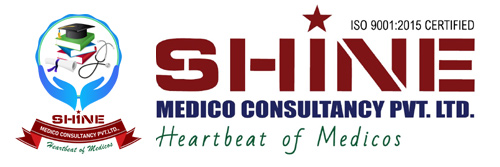MD in Canada
MD programs in Canada typically span three to four years, requiring applicants to hold a bachelor’s degree with specific prerequisites in science courses. The admission process is highly competitive, evaluating candidates based on academic performance, MCAT scores, letters of recommendation, and relevant extracurricular activities. MD programs incorporate clinical rotations for practical experience in various medical specialties, with graduates proceeding to residency programs for specialization.
Prospective students must complete prerequisite courses during their undergraduate studies, conduct thorough research on MD programs in Canada, dedicate time to MCAT preparation, establish strong relationships for letters of recommendation, gain clinical experience, and craft a well-rounded application emphasizing academic achievements and personal experiences. Financial planning and staying informed about admission criteria updates through regular checks on medical school and AFMC websites are essential for a comprehensive and successful entry into the medical profession in Canada.
MD in Canada: Salient Features, Admission Process, and Guidelines:
Salient Features:
- Duration: MD programs in Canada generally last for three to four years.
- Academic Prerequisites: Applicants are typically required to have completed a bachelor’s degree from a recognized institution, with specific prerequisites in science courses.
- Medical College Admission Test (MCAT): The MCAT is commonly required for admission, assessing applicants’ understanding of scientific concepts, critical thinking, and problem-solving skills.
- Competitive Admission: Admission is highly competitive, with emphasis on academic performance, MCAT scores, letters of recommendation, and relevant extracurricular activities.
- Clinical Training: MD programs in Canada include clinical rotations, providing practical experience in various medical specialties.
- Residency: Following graduation, students enter residency programs to specialize in a specific area of medicine.
Admission Process:
- Prerequisite Courses: Complete the required undergraduate courses, including biology, chemistry, physics, and humanities.
- Bachelor’s Degree: Obtain a bachelor’s degree from a recognized institution, ensuring completion of necessary prerequisites.
- MCAT Exam: In the Medical College Admission Test (MCAT) the student needs to achieve a competitive score.
- Application through AMCAS: Apply through the Association of Faculties of Medicine of Canada (AFMC) Admission Requirements for Medical Schools in Canada, including academic transcripts, MCAT scores, letters of recommendation, and a personal statement.
- Interview: If selected, attend interviews with medical schools as part of the evaluation process.
- Acceptance and Residency Matching: Upon acceptance, complete the MD program, and subsequently participate in the Canadian Resident Matching Service (CaRMS) for residency placement.
Guidelines for Prospective Students:
- Early Planning: Begin planning early, ensuring completion of prerequisite courses during undergraduate studies.
- Research Programs: Research MD programs in Canada to find those aligned with your goals, considering curriculum, faculty, and clinical opportunities.
- MCAT Preparation: Dedicate time to MCAT preparation, utilizing study resources and practice exams.
- Letters of Recommendation: Establish strong relationships with professors and mentors to secure compelling letters of recommendation.
- Clinical Experience: Gain relevant clinical experience through volunteer work or internships in healthcare settings.
- Application Strategy: Craft a well-rounded application, emphasizing academic achievements, extracurricular activities, and personal experiences.
- Financial Planning: Consider the financial aspects of medical education, exploring available scholarships or financial aid options.
- Stay Informed: Regularly check the official websites of medical schools and AFMC for updates on admission criteria and requirements.
- By following these guidelines, prospective students can navigate the competitive admission process for MD programs in Canada, ensuring a well-informed and successful entry into the medical profession.

